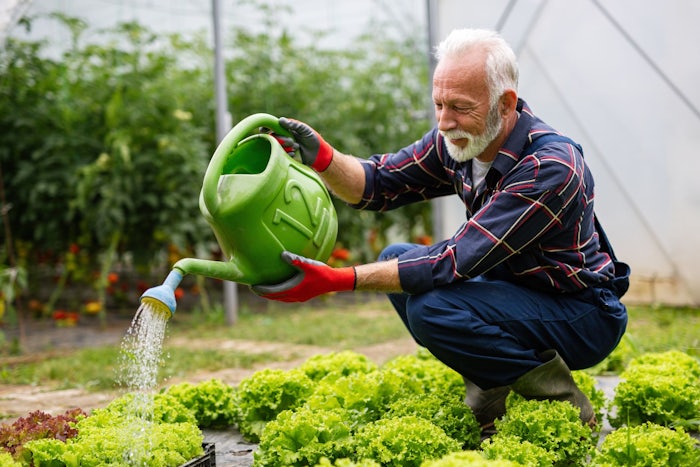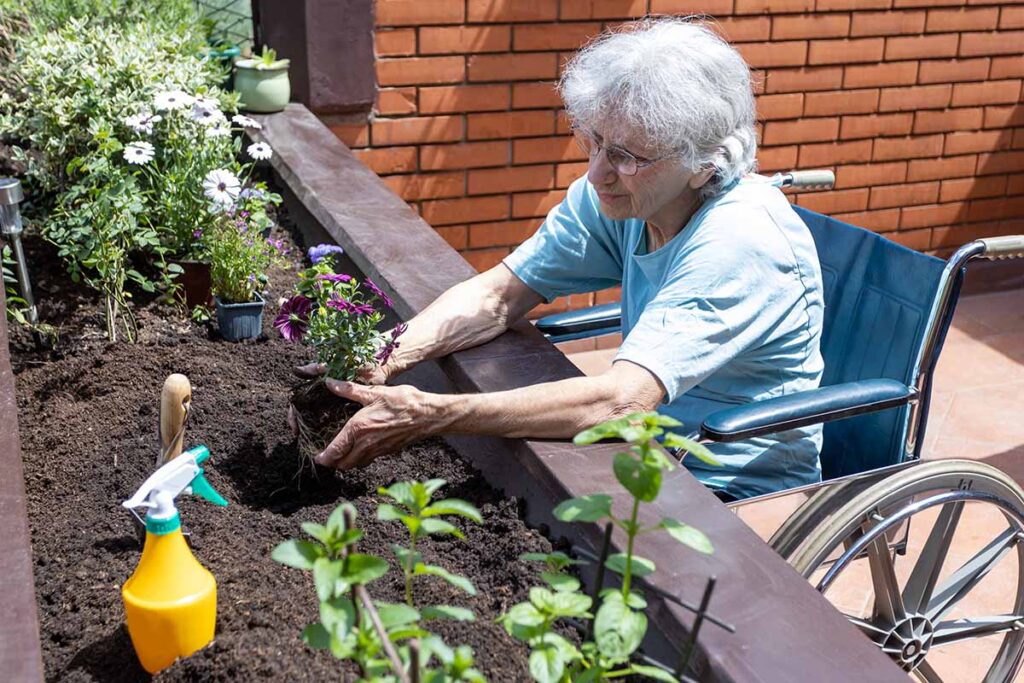Benefits of Gardening for People Living with Dementia

What are the benefits of gardening for people living with dementia?


Gardening offers a multitude of therapeutic benefits for individuals living with dementia, enhancing their physical, cognitive, and emotional well-being.
Cognitive and Emotional Benefits
- Improved Cognitive Functions: Engaging in gardening activities can lead to improvements in memory, attention, and overall cognitive abilities. The act of planning, remembering tasks, and recognizing different plants stimulates the brain in a gentle, nurturing way.
- Stress Reduction and Relaxation: The tranquility of a garden setting can significantly reduce stress levels, lower blood pressure, and increase feelings of calm and relaxation. The natural environment can provide a peaceful retreat from the stresses of daily life.
- Enhanced Mood: Regular interaction with nature and participation in gardening can improve mood, offering a sense of joy and satisfaction. It’s an activity that fosters a positive outlook and emotional balance.
Physical Health Benefits
- Exercise and Mobility: Gardening is a form of physical exercise that improves endurance, strength, mobility, flexibility, and balance. Activities such as walking, reaching, bending, and digging contribute to physical health and well-being.
- Circadian Rhythms and Vitamin D: Spending time outdoors helps maintain the sleep/wake cycle and ensures the natural absorption of vitamin D from sunlight, essential for strong bones and overall health.
Therapeutic and Social Benefits
- Sense of Purpose and Achievement: Gardening is a meaningful activity that creates a sense of purpose and accomplishment. It offers opportunities for learning, discovery, and fun, enhancing self-esteem and well-being.
- Social Interaction and Inclusion: Gardening promotes social interaction, helping to develop friendships and share interests in plants and the outdoors. It provides a sense of belonging and acceptance, particularly valuable for those who may feel socially isolated.
- Intergenerational Engagement: Gardening as a family or in intergenerational settings allows older adults to share skills and knowledge, fostering connections across ages.
- Supportive Communities: Social gardening and gardening clubs can offer supportive environments that promote inclusion for older people, individuals with disabilities, and those from diverse backgrounds.